ADT
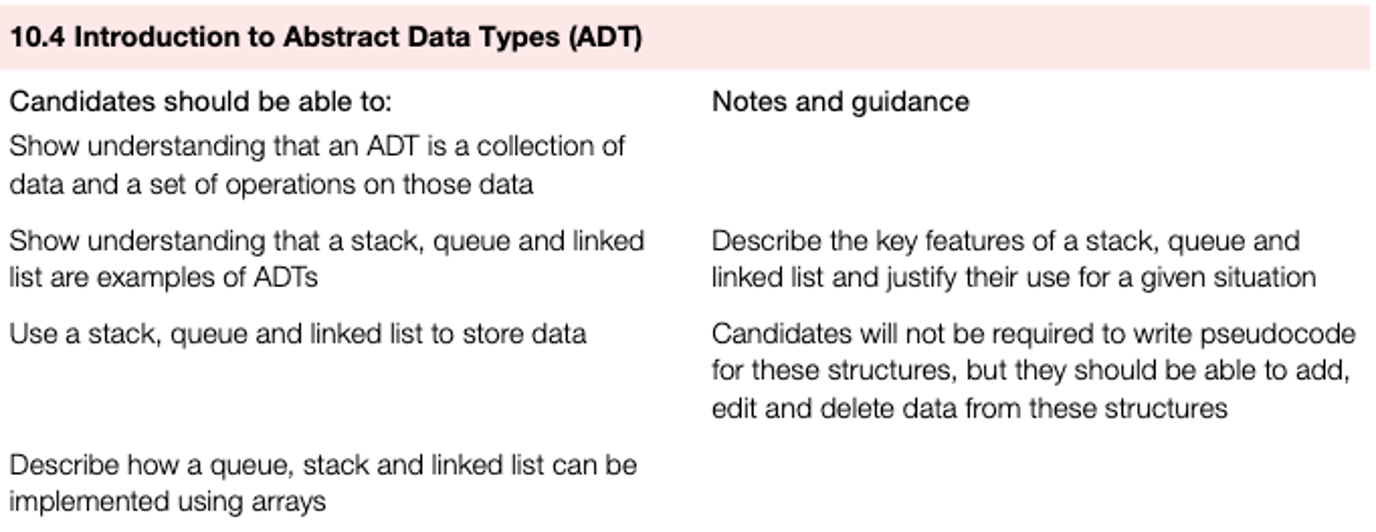
- There are three Abstract Data Types(ADT) that we normally use in the program:
- stack
- queue
- linked list
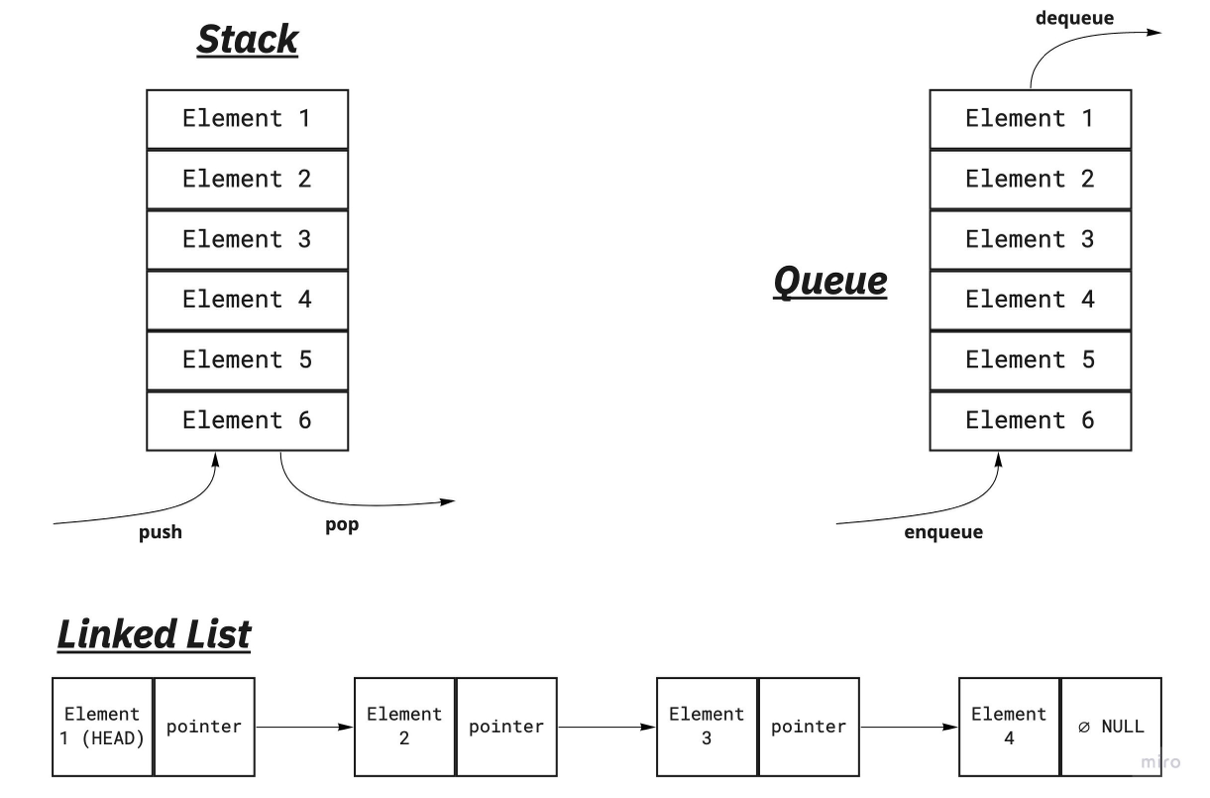
Stack
- In programming terms, putting an item on top of the stack is called push and removing an item is called pop.
- Item 3 was kept last, it was removed first. This is exactly how the LIFO (Last In First Out) Principle works.
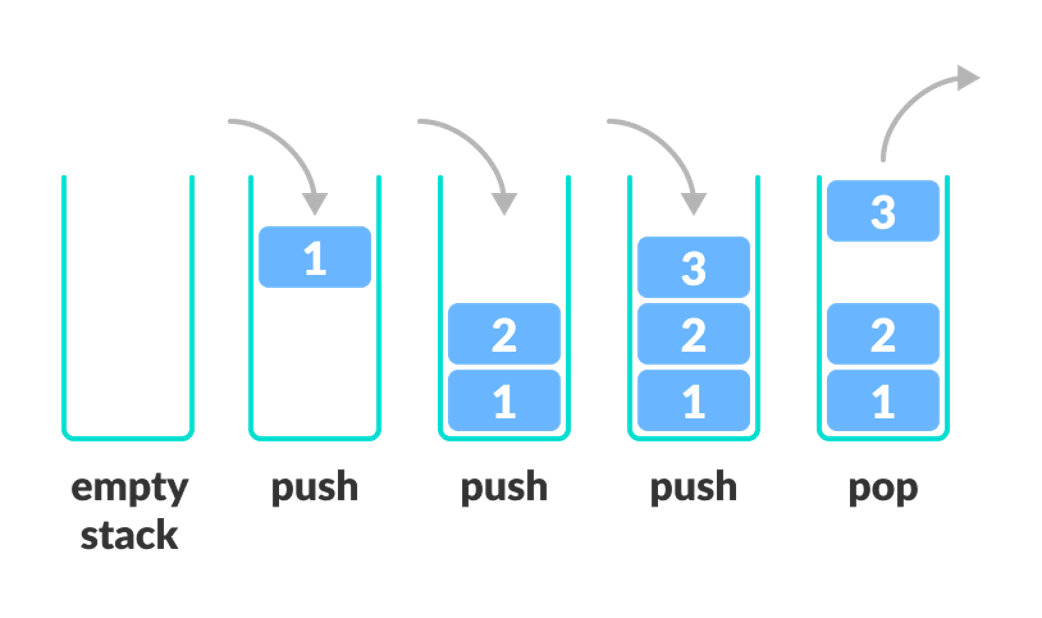
- A stack can be implemented using an array and a set of pointers.
- As an array has a finite size, the stack may become full and this condition must be allowed for.
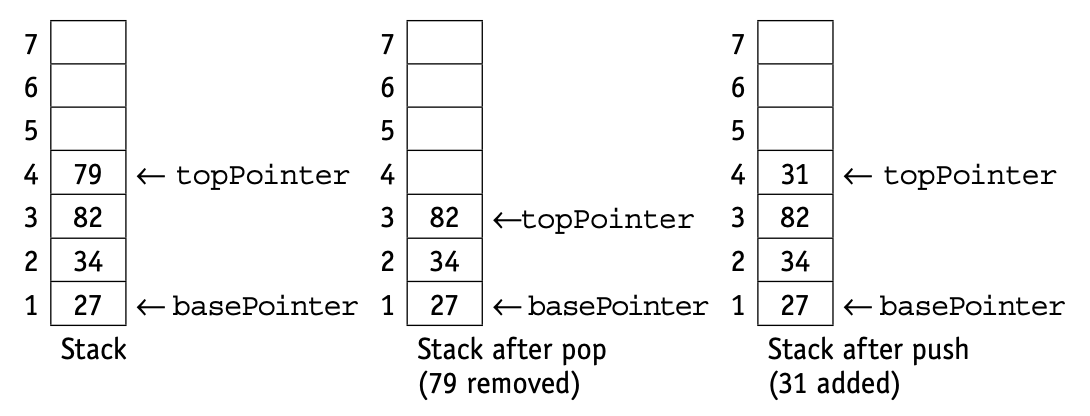
To set up a stack
DECLARE stack ARRAY[1:10] OF INTEGER
DECLARE topPointer : INTEGER
DECLARE basePointer : INTEGER
DECLARE stackful : INTEGER
basePointer ← 1
topPointer ← 0
stackful ← 10To push an item, stored in item, onto a stack
IF topPointer < stackful THEN
topPointer ← topPointer + 1
stack[topPointer] ← item
ELSE
OUTPUT "Stack is full, cannot push"
ENDIFTo pop an item, stored in item, from the stack
IF topPointer = basePointer - 1 THEN
OUTPUT "Stack is empty, cannot pop"
ELSE
Item ← stack[topPointer]
topPointer ← topPointer - 1
ENDIFQueue
- A queue is a useful data structure in programming.
- It is similar to the ticket queue outside a cinema hall, where the first person entering the queue is the first person who gets the ticket.
- Queue follows the First In First Out (FIFO) rule - the item that goes in first is the item that comes out first.

- A queue can be implemented using an array and a set of pointers.
- As an array has a finite size, the queue may become full and this condition must be allowed for.
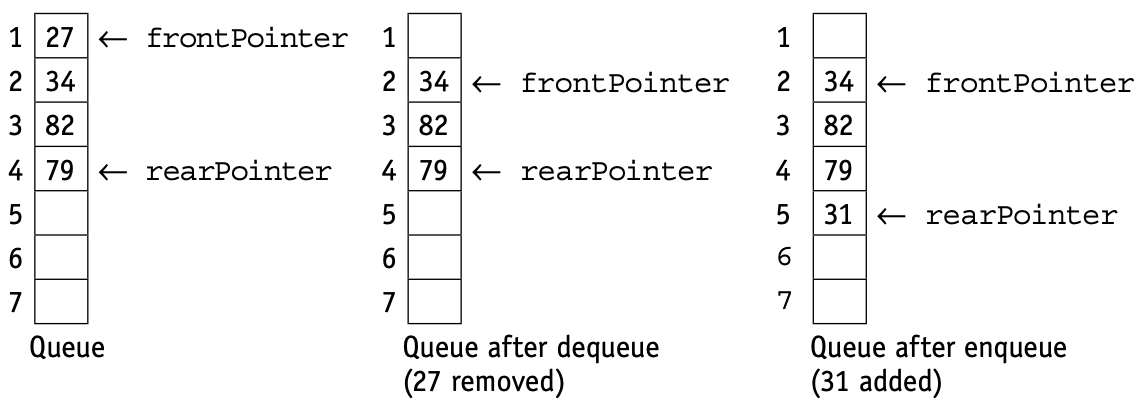
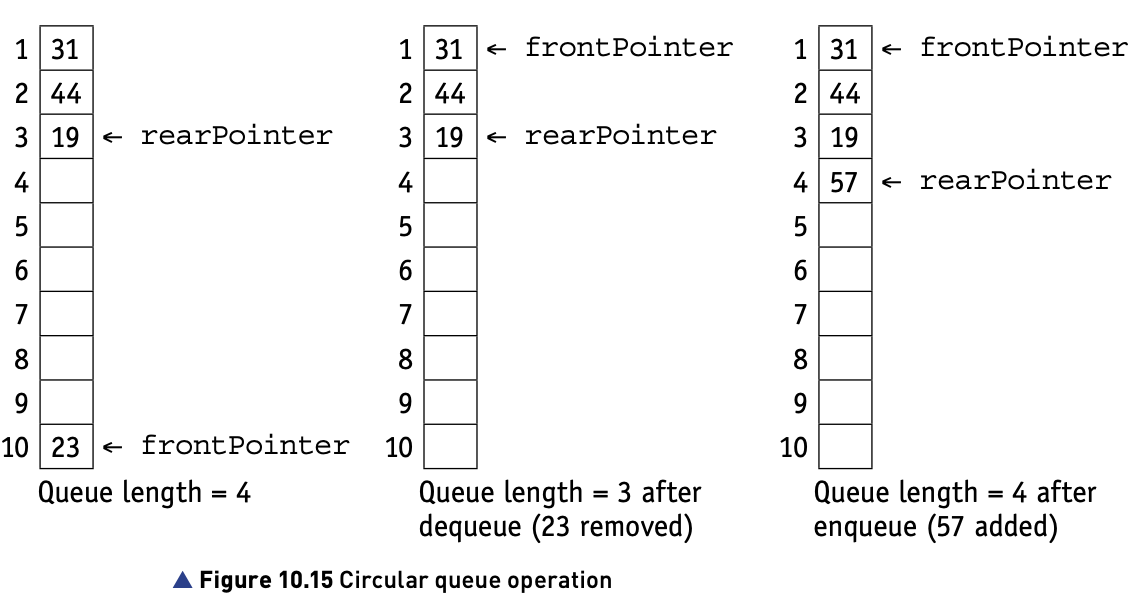
To set up a queue
DECLARE queue ARRAY[1:10] OF INTEGER
DECLARE rearPointer : INTEGER
DECLARE frontPointer : INTEGER
DECLARE queueful : INTEGER
DECLARE queueLength : INTEGER
frontPointer ← 1
endPointer ← 0
upperBound ← 10
queueful ← 10
queueLength ← 0To add an item, stored in item, onto a queue
IF queueLength < queueful THEN
IF rearPointer < upperBound THEN
rearPointer ← rearPointer + 1
ELSE
rearPointer ← 1
ENDIF
queueLength ← queueLength + 1
queue[rearPointer] ← item
ELSE
OUTPUT "Queue is full, cannot enqueue"
ENDIFTo remove an item from the queue and store in item
IF queueLength = 0 THEN
OUTPUT "Queue is empty, cannot dequeue"
ELSE
Item ← queue[frontPointer]
IF frontPointer = upperBound THEN
frontPointer ← 1
ELSE
frontPointer ← frontPointer + 1
ENDIF
queueLength ← queueLength - 1
ENDIFLinked list
- A linked list is a linear data structure that includes a series of connected nodes.
- Here, each node stores the data and the address of the next node.

- A linked list can be implemented using two 1D arrays, one for the items in the linked list and another for the pointers to the next item in the list, and a set of pointers.
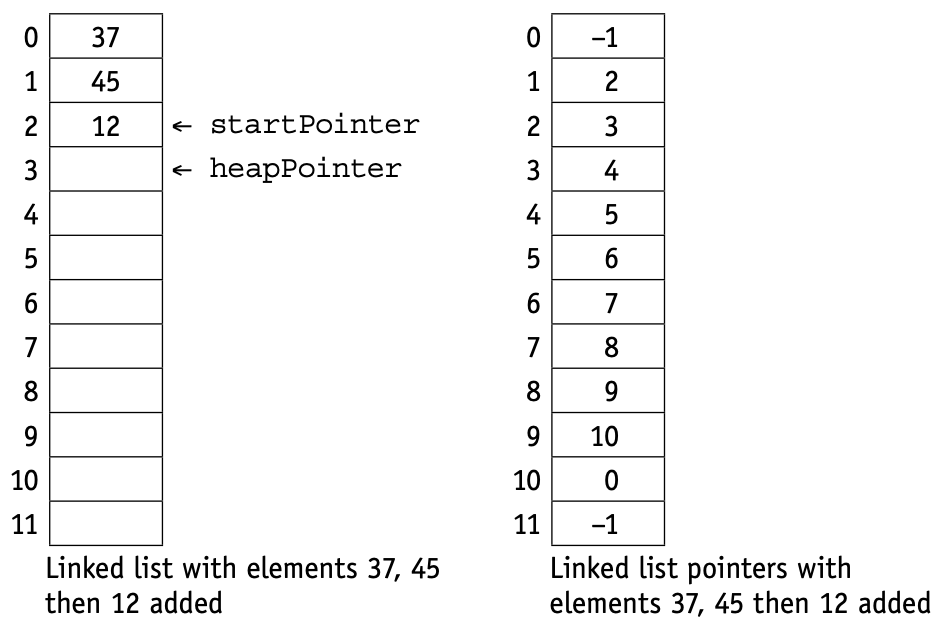
To set up a linked list
DECLARE mylinkedList ARRAY[0:11] OF INTEGER
DECLARE myLinkedListPointers ARRAY[0:11] OF INTEGER
DECLARE startPointer : INTEGER
DECLARE heapStartPointer : INTEGER
DECLARE index : INTEGER
heapStartPointer ← 0
startPointer ← –1 // list empty
FOR index ← 0 TO 11
myLinkedListPointers[index] ← index + 1
NEXT index
// the linked list heap is a linked list of all the spaces in the linked list, this is set up when the linked list is initialised
myLinkedListPointers[11] ← –1
// the final heap pointer is set to –1 to show no further links| Identifier | Description |
|---|---|
| myLinkedList | Linked list to be searched |
| myLinkedListPointers | Pointers for linked list |
| startPointer | Start of the linked list |
| heapStartPointer | Start of the heap |
| index | Pointer to current element in the linked list |
ADT
Which one follows the (First In First Out (FIFO) rule?
[0/1]